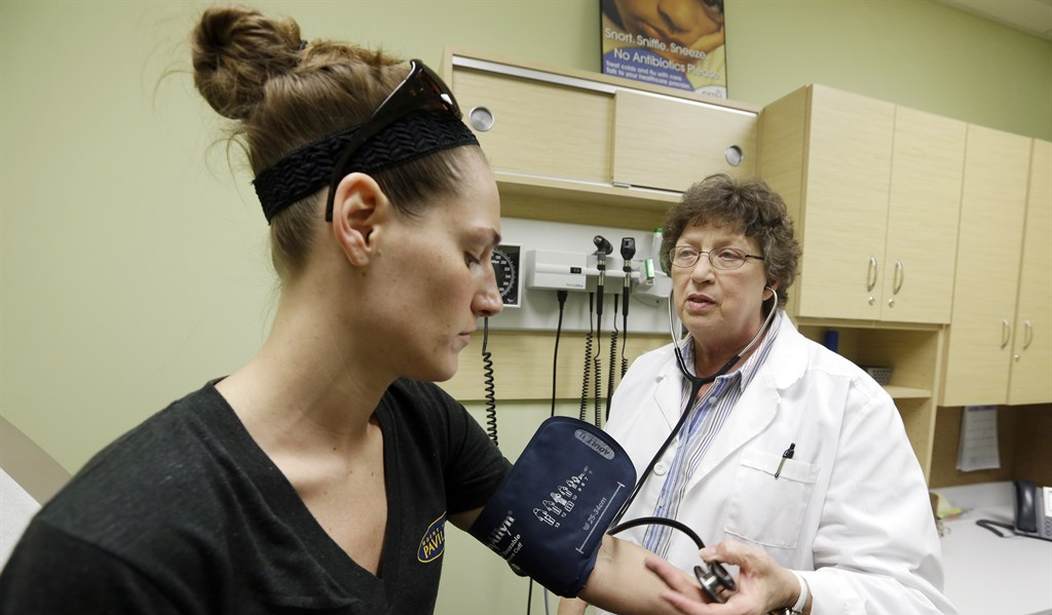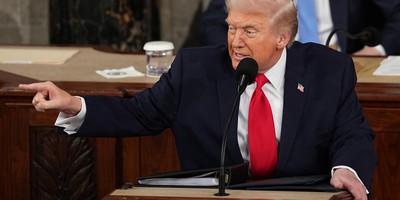Editor’s note: This column was co-authored by Richard Armstrong, Treasurer of the Docs 4 Patient Care Foundation.
As we enter the third year of open enrollment in the healthcare insurance exchanges under Obamacare, the promises of lower insurance costs and greater access to insurance ring hollow for over 500,000 Americans. These are the casualties of the closure of 8 state exchanges. Of the remaining 15 exchanges, all but one is losing money, and further closings are anticipated. The victims here, besides the taxpayers on the hook for over $1billion in loan subsidies to these exchanges, are the individual policy holders who now must scramble to procure healthcare insurance coverage.
If this was not bad enough news for participants in the healthcare exchanges, the Obama administration just released the 2016 healthcare insurance cost estimates, and the news is not good. Rates are going up again- on average high single to low double digits. In Minnesota, the 5 carriers on the exchange posted rate increases ranging from 14-49%. These policies not only cost more, but place increasing financial risk and exposure on the policy holders, with deductibles between $3000- $12,000.
One of the untold stories regarding the negative effects of Obamacare on our healthcare system, is the irreparable harm being done to our rural healthcare network. iVantage Health Analytics reported that since 2010, there have been 56 rural hospitals that have closed their doors- the latest, Mercy Hospital in Independence, Kansas. There are an additional 283 rural hospitals across America on the brink of closure. 35% of rural hospitals are operating at a financial loss, but this was not always the case. Obamacare is a big part of the problem.
There is not just a single explanation for this impending catastrophe. Medicare cuts to providers play a big role and there has been substantial loss of revenue that hospitals receive when caring for the uninsured. These are the Disproportionate Share Hospital Payments that have been reduced as part of Obamacare, with the assumption that there would be less uninsured patients under this law, especially with Medicaid expansion. This failed to materialize, and rural hospitals are saddled with the care of the uninsured patients, but receiving less money for doing so. Revenue has also suffered because patients are delaying or avoiding getting the care that they need because they cannot afford to pay their increasingly large deductibles.
Recommended
Perhaps the most harm is done when the hospitals and physicians must absorb the compliance costs legislated by Washington. The mandate for implementation of an electronic medical record and the program associated with it known as Meaningful Use, has cost hospitals millions of dollars which in the case of rural hospitals, can never be recovered and leads to their demise. The reasons for this are primarily due to a significant loss in productivity and a focus on collecting data and following protocols that have no bearing on patient care. Attention is diverted from patient care, and hospitals are becoming just another cog in an ever expanding federal healthcare bureaucracy.
When hospitals close, patients are directly affected, but others are as well. One out of every 4 Americans resides in a rural area. The potential closure of the 382 rural hospitals means 700,000 fewer patient visits, the loss of 36,000 healthcare jobs and 50,000 associated community jobs, at a cost of over $10.6 Billion.
As a general surgeon (RA) practicing in a rural critical access hospital I have witnessed the consequences of the forced adoption of electronic medical record systems which have not produced the results promised when the HITECH Act was passed as part of the Stimulus Bill in 2009. Poorly understood “good” intentions are having real world tragic results.
Since our facility embarked on this financially perilous project, we have been “in the red” for the first time in over 13 years. This has forced the elimination of many good employees- solid local people who are doing good work and don’t understand what is being done to them.
The incentive payments from the Meaningful Use Program do not begin to cover the costs of implementation of these ill-conceived and cumbersome products which reduce efficiency and do not improve medical care. The end result across the country will be further hospital closures and reduced access to medical care for millions of patients.
This problem was avoidable. Instead of seeking counsel from physicians compelled to implement these policies, Washington politicians pandered to special interests which profited by their adoption. The true focus needs to be redirected back to real patient care; otherwise there will be fewer professionals to deliver it and fewer places for patients to receive it.

























Join the conversation as a VIP Member